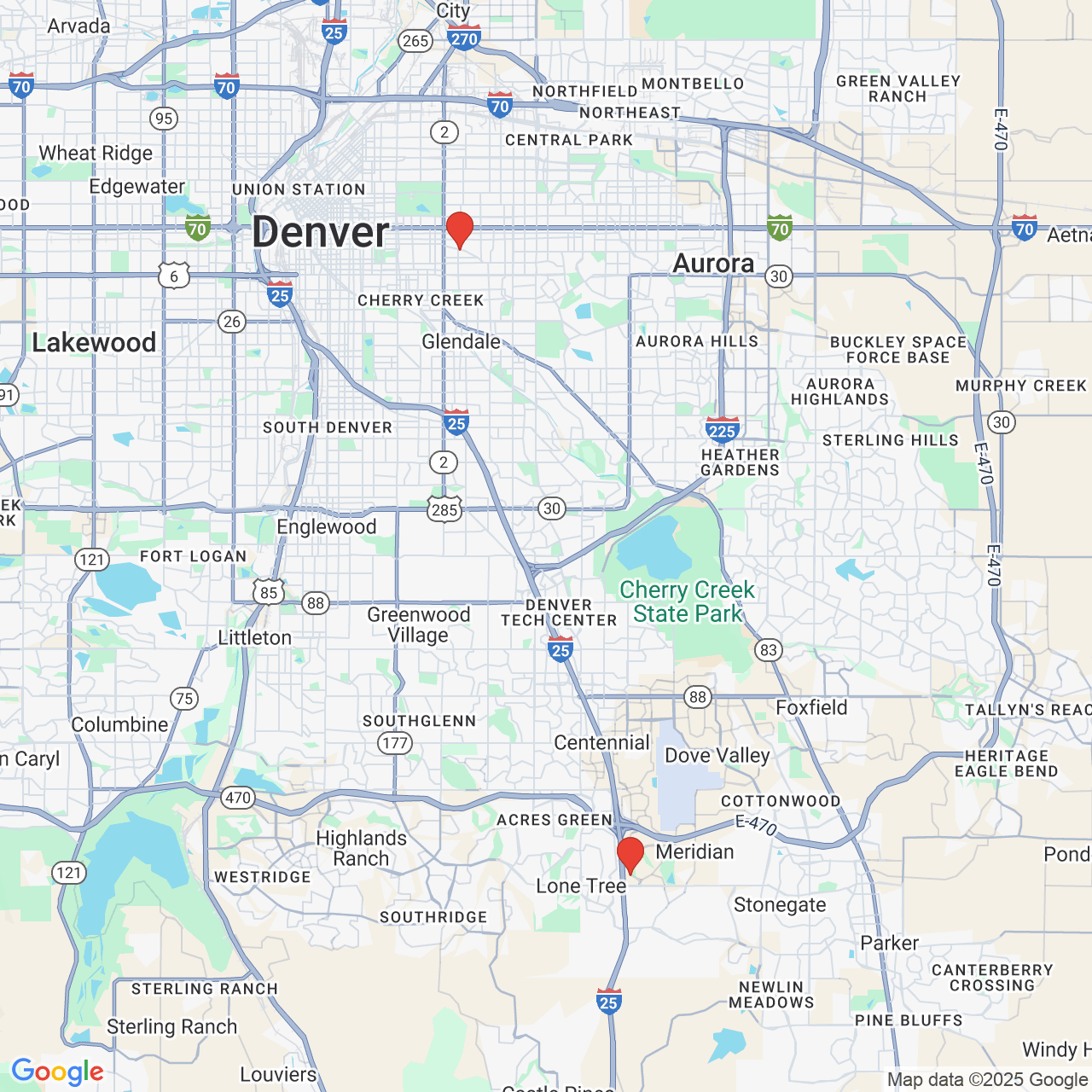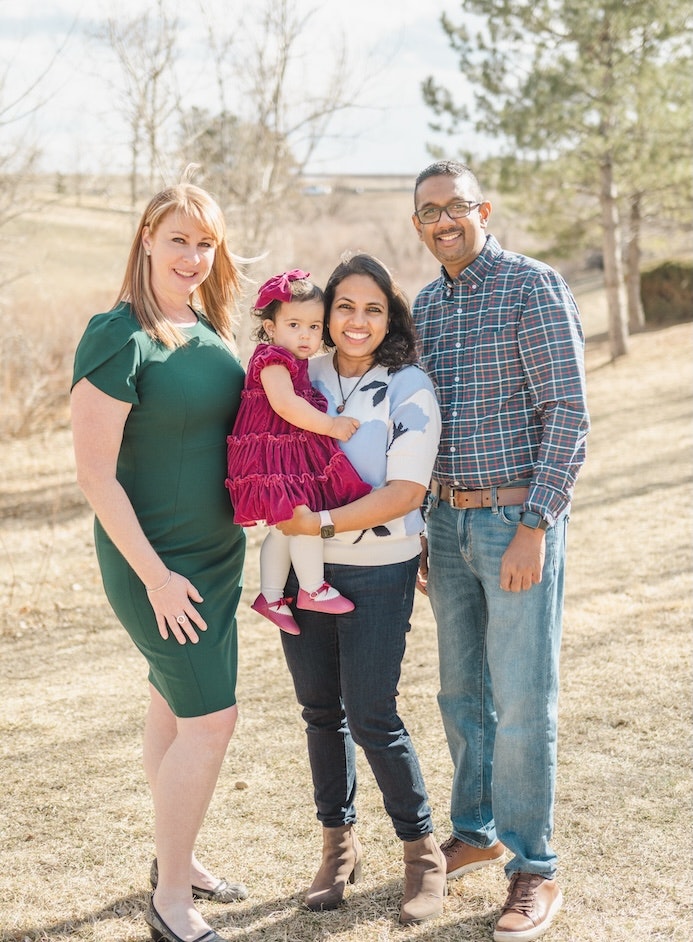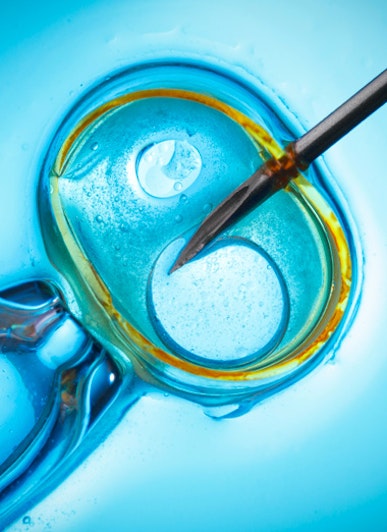Egg Freezing
Do you know you want to grow your family in the future, but now isn't the right time?
By freezing your eggs, you can plan your family on your own terms.
Dr. Dana Ambler in Denver, CO, offer egg freezing for women who would like to preserve their future fertility.
What is Egg Freezing?

Egg freezing, also known as oocyte cryopreservation, is a fertility preservation method. In the egg freezing process, a woman’s eggs (oocytes) are stimulated through a regimen of medications. When they are fully matured, the eggs are retrieved from both ovaries. The eggs are then cryopreserved, or frozen, using a specialized technique that rapidly cools them to temperatures around −196°C using liquid nitrogen.
This process allows the frozen eggs to be stored indefinitely. When you are ready, the eggs are thawed and used during an IVF cycle or surrogacy.
Benefits of Egg Freezing
Egg freezing is a great option for many patients who wish to delay childbearing but are concerned about their later fertility.
Fertility rates decline with age: both the number of eggs a woman has and their quality decrease every year. This makes it more difficult to become pregnant after your late 30's. Freezing your eggs at a younger age can increase your chances of a successful pregnancy later in life.
Egg freezing can also help preserve the fertility of patients with certain medical conditions or cancer, who may risk damage to their eggs during treatment. Egg retrieval allows them to preserve their eggs before treatment to use in the future.
"Dr. Ambler and team have been so wonderful during our IVF journey. I’ve seen a lot of RE physicians over the years and she strikes a great balance between professionalism and compassion. I also love how easy the communication with the nurses is through the patient portal. They are so quick to respond! We are happy to be moving on to the next chapter and are grateful for their skill and expertise." Kari, 2023
Your Path Through The Egg Freezing Process

What are the Most Common Reasons Women Choose to Freeze Their Eggs?
Undergoing IVF
Women who are currently undergoing in vitro fertilization (IVF) may choose to preserve their unused eggs for future use.
Timing
Many women pursuing careers or other goals in their 20's and early 30's may choose egg freezing so they can begin their families when the time is right.
Early Menopause
Women with a family history of early menopause, also called premature ovarian failure, may choose egg freezing to preserve their fertility.
Cancer
Certain oncology treatments can impact a woman's hormone levels, damage her eggs, cause premature menopause, or otherwise impact future fertility.
Medical Treatments
Women receiving treatment for conditions that can impact fertility, such as PCOS or endometriosis, and those undergoing certain surgical procedures may opt to freeze their eggs before treatment.
What's the Best Age to Consider Egg Freezing?
/
Women are in their prime reproductive years in their 20's to early/mid 30's. This is the best time to preserve your eggs if you wish to preserve your fertility. However, if you are older, our doctors will perform evaluations to determine your egg health before you begin a cycle.
Wondering if Egg Freezing
is Right for You?
Request a Consultation Today
There are many reasons to choose egg freezing. At Denver Fertility Care, we will guide you every step of the way in this powerful and personal decision.
If you are considering egg freezing or wondering if it is right for you, request a consultation with our fertility experts, Dr. Ambler and Team. You can fill out our online form or call us at one of our two locations:
Englewood: (720) 420-1570
Denver: (303) 321-7115

Advanced Technology for Advanced Care You Can Trust

Our state-of-the-art technology includes RFID tracking for your eggs. This helps to reduce any chance of your genetic material from becoming mixed with someone else's and helps us to properly track each specimen. This tracking technology extends to all genetic samples, including sperm and embryos, to ensure complete control and accountability during your fertility treatments.
Our Colorado IVF lab is fully accredited and designed with the highest standards. This ensures unparalleled safety for genetic materials. Along with advanced technology, our lab is led by expert embryologists.
How Much Does Egg Freezing Cost?
Because our fertility treatments are customized to your unique needs, the best way to get an accurate quote is to visit us for a consultation. Factors that may impact your cost include medications and how long your eggs are stored. Our egg freezing brochure offers some general ideas of what to expect during typical treatment.
Egg freezing can be covered by some insurance companies. We work closely with several leading lenders to offer financing to our patients. For example, we've partnered with Future Family to offer a one-of-a-kind 0% APR fertility financing plan. We also offer self-pay discounts, and subscription plans for IVF and egg freezing.
Hear Why Colorado Chooses Denver Fertility Care
Denver Fertility made my dreams of becoming a mother come true. We have a 2 year old daughter and we are trying again for our second. We can't say enough good things about them!
They are amazing. We have done IVF with them and have a healthy baby boy over a year old. Now we are doing it again for baby #2. They are friendly and great people.
Ready to Start Your Fertility Preservation Journey? Contact Us Today to Request a Consultation
No matter what your reasons for wanting to pursue egg freezing, we are here to guide you every step of the way. Dr. Ambler and Team, have extensive experience in the field to diagnose and treat a range of reproductive health concerns.
To discuss egg freezing, request an appointment today by filling out our online form or by calling one of our two locations in Denver or Englewood, CO.
Englewood: (720) 420-1570
Denver: (303) 321-7115

What Happens When I Want to Use
My Frozen Eggs?
This depends on your unique situation. There are a few options:
IVF
During IVF, the frozen eggs will be thawed and fertilized with sperm in our lab. The fertilized eggs will then be monitored for development; the healthiest embryos will be chosen for transfer into the mother's uterus.
Surrogacy
After IVF fertilization, the resulting embryo is transferred to the uterus of a gestational surrogate. You will work with your chosen agency to find a surrogate, and we will then coordinate care for the IVF process.
Reciprocal IVF
This option for lesbian couples allows both women to be part of the family-building process. In reciprocal IVF, the egg from one mother is fertilized with donor sperm and then transferred to their partner's uterus.
Egg Freezing vs. Embryo Freezing
In egg freezing, the egg does not undergo fertilization. The egg is simply retrieved and frozen for later use. Embryo freezing involves fertilizing the egg with sperm and then freezing the resulting embryo.
Egg Freezing Timeline
A typical egg-freezing cycle takes about two to three weeks.

A typical egg freezing cycle takes about two to three weeks.
What Are the Risks?
Ovarian Hyperstimulation Syndrome
This is an exaggerated response to medications used to stimulate the ovaries. This causes the ovaries to swell, which can be painful. This occurs in 0.2% of cycles.
Damage to Eggs
While most eggs will survive freezing and thawing, it is important to remember that not all of them will. Frozen eggs may be less successful than frozen embryos.








